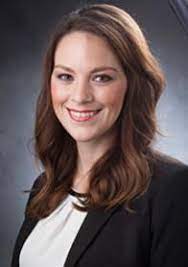Leading Innovations in Health Care & Education brings together scholars from across the globe annually in June. To better highlight our vibrant community, we are profiling several of our recent scholars and asking them about their experience in the course. In this blog post, we interview Andrea Cooley, DO, FACOS, cardiothoracic surgeon by training and an assistant professor of medical education at The University of Texas Tyler School of Medicine.
Harvard Macy Institute: How would you describe your personal and professional background?
I am a cardiothoracic surgeon who practiced for seven years in Tyler, Texas. The University of Texas at Tyler School of Medicine is a new medical school that opened on July 1, 2023. I had the opportunity to engage in the planning of the school right from the start as the surgical clerkship director. I absolutely loved this experience and eventually chose to leave my clinical practice to focus on this work full-time. I am passionate about education and using education to address the challenges we currently face in our health care systems today. I realized that I could use my new role to not only train future physicians, but also to hopefully uncover models to address the overall health care concerns of our nation.
Harvard Macy Institute: What led you to apply to our Leading Innovations in Health Care & Education program?
We all have so many ideas within our day-to-day lives on how to problem-solve and innovate — but having an idea and making it actually happen are two very different things. I joined Leading Innovations in Health Care & Education hoping that I could learn effective ways to transform my ideas into reality. What I did not expect was that the program would teach and encourage me not only to apply these ideas to where I work, but also on a larger scale to other health care systems.
Harvard Macy Institute: How would you describe your overall experience in this program?
The program was life-changing. The tools and ideas provided offered me a complete change in perspective at pretty much every level. Not only did it help me with innovation development, but the program also encouraged leadership and collaboration with other people from the community, as well as with other fields – such as business and technology.
Harvard Macy Institute: How do you think this program is applicable to your profession?
Because we were a new school, we had the opportunity to generate entirely novel processes. The Harvard Macy Leader’s program asked us to bring a project to work on, so I came with a plan to develop a new way to conduct assessment of learners in the clinical setting through a more standardized, consistent, and less biased approach. I was so inspired that shortly after completing the program, I applied for a patent for the software I developed, as well as for an education grant, with the goal of bringing my project to a larger scale. Leading Innovations in Health Care & Education was key to transforming this idea that I had into something that could potentially be applicable and helpful in other schools.
Harvard Macy Institute: What were the two most important takeaways that you gained from the program?
Attending the program and listening to how they taught us the content was a takeaway in itself. Little things like the energy the faculty brought to their presentations and how they posed engaging questions were very impactful and allowed us to make the most of this experience. The course directors and faculty knew the points they wanted to get across but would wait for a scholar to bring them up to introduce it to the audience, in order to find the perfect and salient moment to do so. Observing their style of teaching made such an impact on how I currently approach engaging with students.
Additionally, the program provided a roadmap on how to take my idea and execute it immediately. The faculty and other scholars looked at every single angle of the project, turning it into something I could implement, sustain, and generalize - to potentially have a larger impact beyond my local setting. The environment is very psychologically safe, and all feedback is appreciated and not taken personally.
Harvard Macy Institute: Has this program impacted your behavior within your professional work? Can you provide an example?
The program changed how I viewed my project. Within a couple of months, my project went from an assessment method to potential software to understand human behavior. The program also changed how I interact with students, faculty, and administrative leadership. I modeled my behavior based on how the program’s directors and faculty conducted the sessions, as well as on the techniques they taught in the course. For instance, I learned a lot about negotiation, something that came from the business aspects of the program.
Harvard Macy Institute: How do you feel this course is different than other continuing medical education or professional development courses you have taken?
The crossover and integration between business, health care, and technology is unique and not commonly seen in other health professions development programs. Moreover, this program is interactive and fully immersive. It provides a deep immersion for each scholar project. The learning environment positively impacts every project and encourages scholars to apply everything that is taught to their own activities.
Harvard Macy Institute: Would you recommend Leading Innovations in Health Care & Education to a colleague? If so, why?
I would absolutely recommend this program. It really changed my perspective on how to handle any challenges, barriers, or problems we encounter in health professions education. Educators might feel stuck when there are big changes that need to be tackled, but I have learned that when this group of medical and health professions educators convenes and aligns all their efforts in the same direction, the problem becomes more surmountable. Leading Innovations in Health Care & Education provides you with the roadmap, the technique, and the confidence to lead these changes.
Did you know that the Harvard Macy Institute Community Blog has had more than 370 posts? Previous blog posts have interviewed scholars including Ezra Schwartz and Katherine Chartier, as well as course director Louis Pangaro.
Andrea C Cooley


